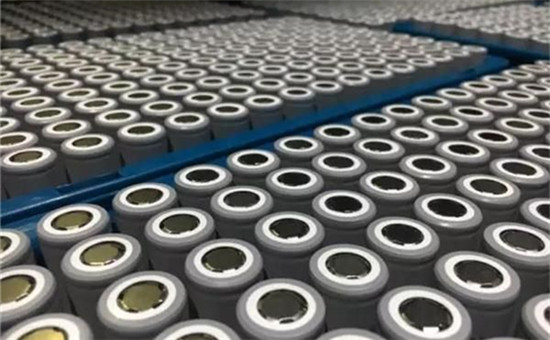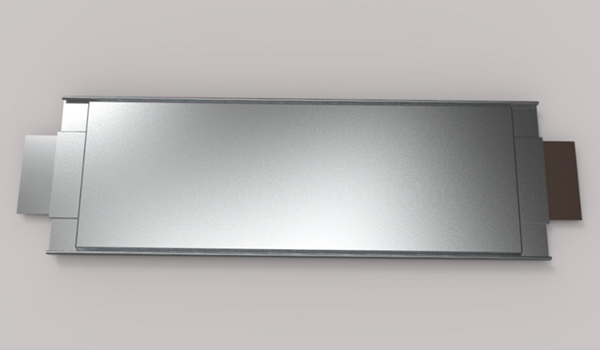Which is better, polymer batteries and lithium ion batteries? What is the difference between them?
May 08, 2019 Pageview:2432
The concept of lithium ion batteries is used frequently. It is obvious that this concept has differences in broader sense, narrow sense and much narrower sense. Lithium ion batteries in a broad sense include lithium primary batteries and lithium ion batteries. Because lithium ion batteries are more widely used than lithium primary batteries, lithium batteries generally refer to lithium ion batteries in a narrow sense. There are two types of lithium ion batteries include Polymer lithium-ion batteries and liquid lithium-ion batteries. Because lithium-ion batteries have larger size and most of them are liquid lithium-ion batteries, the much narrower understanding of lithium batteries refers to liquid lithium-ion batteries, while polymer lithium-ion batteries are called lithium polymer batteries, which people get used to call polymer batteries. Compared the difference between a lithium polymer battery and a lithium ion battery in a broad sense and arrow sense, the only relationship between these two kinds of battery concept is that the lithium battery included lithium polymer battery. What is more meaningful is the comparison on the much narrower sense: the comparison between the polymer battery and the liquid lithium ion battery. Based on the concept above, the following lithium battery refers to the liquid lithium ion battery.

1. The basic difference is raw material
The polymer battery is a battery that at least one of these three components including the positive electrode, the negative electrode or the electrolyte, is a polymer material. Polymer means that the molecular weight is large, and the corresponding concept is a small molecule. Polymer has high strength, high toughness and high elasticity. Currently, the polymer battery materials are mainly used for the positive electrode and the electrolyte. 1 Polymer battery cathode material can also use conductive polymer except the inorganic compound of lithium battery. 2. Polymer battery has polymer electrolyte (solid or colloid) and organic electrolyte. Lithium ion battery uses electrolyte (liquid or colloid).
2. State difference
Polymer batteries can be molded as thin pieces, at random area and arbitrary shape because the electrolyte has solid, colloid and non-liquid state. Lithium ion batteries use electrolytes with a strong outer casing for secondary package. Therefore, this also adds a part of the weight of the lithium ion battery.
3. Security aspects
Currently, most of the polymers are soft-packed batteries, which are made of aluminum-plastic film. When the organic electrolyte is used inside, even if the liquid is very hot, it will not explode because the aluminum-plastic film polymer battery adopts solid or colloid, it can only burst naturally, but no leakage. However, everything is possible. If the instantaneous current is large enough and a short circuit occurs, it is possible for the battery to ignite or burst. The occurrence of safety accidents on mobile phones and tablets is caused by this situation.
4. cell voltage
Since the polymer battery is made of a polymer material, it can be made into a multi-layer combination in the battery cell to achieve a high voltage, and the lithium battery cell has a nominal capacity of 3.6V. To achieve a high voltage in practical use, it is necessary to The cells are connected in series to form the ideal high voltage working platform.
If you compare the polymer battery and the lithium ion battery on the characteristics above, the conclusion is obvious. However, the application of lithium ion battery in the market is dominant, which indicates that the lithium ion battery also has a comparative advantage, and we will continue to discuss it on this article.
5. conductivity
The solid electrolyte of the polymer battery has low ionic conductivity, and currently some additives are added to make it a gel electrolyte so as to improve its conductivity. This also increases the ionic conductance, which does not maintain a stable value for the conductivity of the lithium ion battery, and is not affected by the quality of the auxiliary material.
6. capacity
The capacity of polymer batteries did not improved effectively, but it has been reduced compared to standard capacity lithium ion batteries.
7. the manufacturing process
The thinner the polymer battery is, the more the battery products. While the thicker the lithium ion battery is, the more the battery products, which makes the lithium ion battery more expandable in the field of application.
8. the price
It is the key factor of the market capacity. At present, the price of polymer batteries in the market is generally higher than that of lithium ion batteries, which affects the market capacity of them. The ratio of the former to the latter is 1:9.

It's difficult to make a decision whether polymer batteries or lithium batteries are good. They have their own merits. If you have to draw a conclusion, polymer batteries tend to use in small equipment, while lithium ion batteries tends to use in large-scale applications. If polymer battery is able to break through the limitations of price and design, it may represent a battery development trend, because of its environmental protection and safety performance.
Leave Message
Hottest Categories
-
Hottest Industry News
-
Latest Industry News









